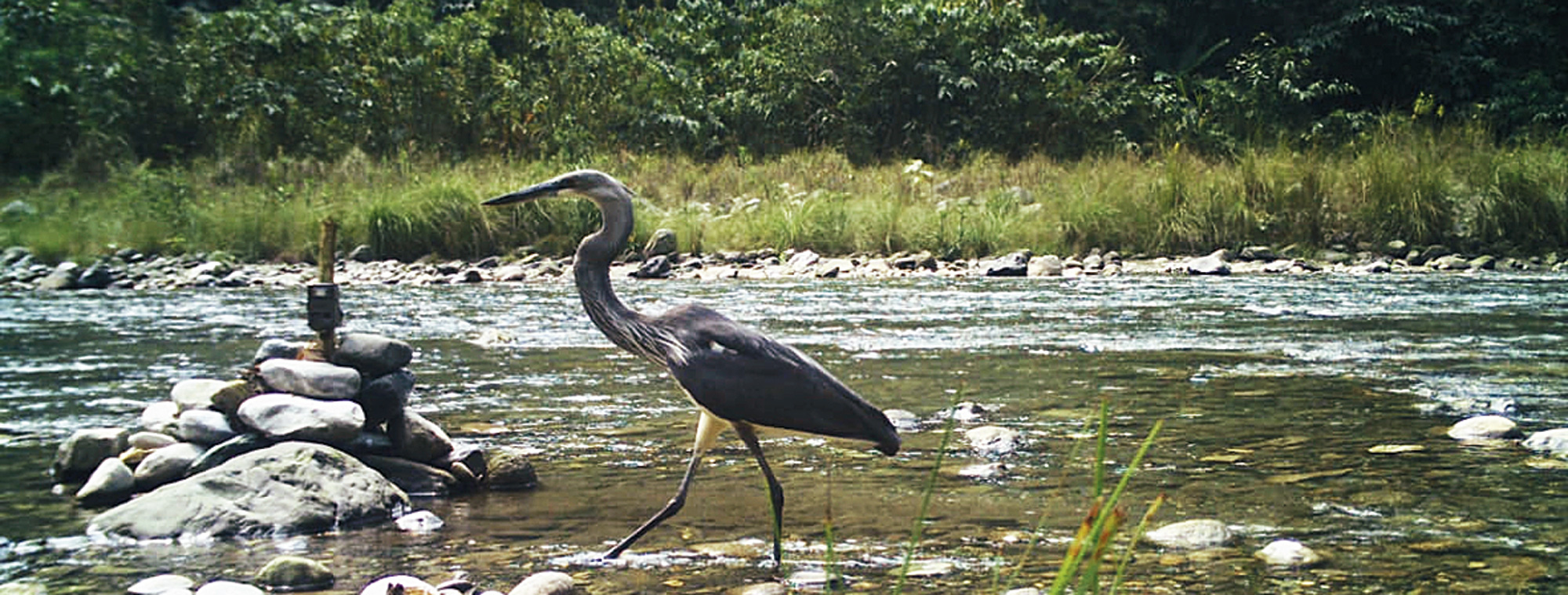In a classic example of serendipity, a search for tigers caught the critically endangered white-bellied heron for the first time on camera.
A rare white-bellied heron (Ardea insignis) has been captured in a camera trap photo at Kamlang tiger reserve at Wakro of Lohit district in Arunachal Pradesh.
The camera was originally set up for the All India Tiger Estimation 2018.
The heron was a lone adult captured in a series of camera trap photos on the bank of the Tawa on March 14 at 12.20pm.
“This is the first camera trap picture of this species. The species was recently spotted by the Zoological Survey of India at Namdhapa in 2014,” Taru Habung, a field biologist at the tiger reserve, told The Telegraph.
Also known as the imperial heron, the white-bellied heron is a critically endangered species with less than 250 mature individuals. At 1.27 metres in height, it is the world’s second largest heron, exceeded only by the Goliath heron.
Globally, this species is known to exist with 50-249 mature individuals, according to the International Union for Conservation of Nature, 2018, and currently distributed in Bhutan, India and Myanmar. The IUCN has also reported the extinction of this species in Nepal.
“This is a very rare species and not much study has been done on this. In Arunachal, it was only recorded in Namdapha but now we have it in Kamlang too,” Habung said.
“This finding has only been possible due to the dedication of the Special Tiger Protection Force who are the real heroes,” he added.
“The exercise was done under the guidance of the divisional forest officer of the tiger reserve, Koj Tassar and under the supervision of range forest officer, Kelsang Dechen. Both of them expressed joy at finding such a rare species and congratulated all the staffs of the reserve. They also appreciated the work of STPF,” he said.
“This incident shows that camera trap can be used as an observation tool in very inaccessible geographical terrain, as in the Kamlang tiger reserve,” he said.











